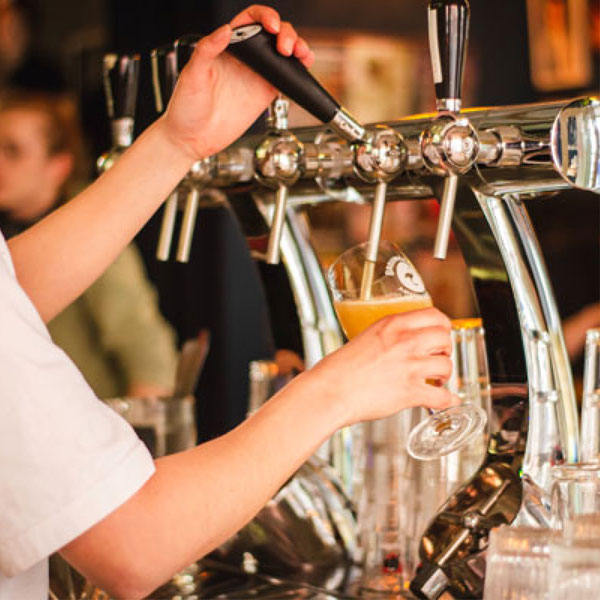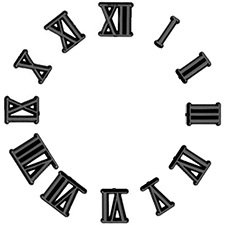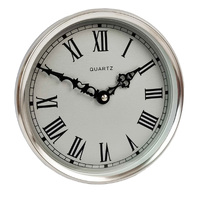A Brief History of Beer
Author: Clock Shop Date Posted:6 April 2022


Beer is one of the oldest drinks ever to have been produced by humans. Named after the Latin word ‘bibere’ which means ‘to drink’, beer has long been a staple across most of human culture, with the earliest suggestion of beer going back to when grain was harvested by the Sumerians of Mesopotamia around 10,000 years ago. Ancient beer jugs have been unearthed at sites in Sumer dating back to 4000 BC, as well as in ancient Egypt where women brewed beer as a household staple. In Germany, a discovery in a Bavarian tomb has dated the presence of beer in the region to 800 BC, whilst Christian monks took on the process of brewing beer as part of monastic life in the early Christian Era across Europe. In fact, Germany is home to some of the oldest breweries in the world which were originally run by monks including Weihenstephan- the world's oldest brewery, founded at the Benedictine Weihenstephan Abbey in the year 1040; as well as Augustiner-Bräu, a similar brewery built in Munich in 1328 by monks, which is still in operation today.
Early forms of beer had a thick consistency similar to porridge, which was enjoyed through straws designed to filter out byproducts such as bread and herbs. It is believed that the Sumerians developed the straw specifically for the purpose of drinking beer, which further reinforces the belief that beer has been a staple throughout history for up to 10,000 years.
April 23rd, 1516 - A Significant Date In The History Of Beer Brewing
Considering this rich history, beer has truly been ingrained into human civilization from the dawn of the neolithic period through to the modern day era. For some of us, including our ancestors, beer is something that is enjoyed daily. For others, only on special occasions. No matter the case, beer has been celebrated and cherished for thousands of years, which makes the date of April 23rd a truly significant date in the history of brewing beer.
In order to understand the origins of this treasured day, we must take a trip back 506 years to April 23rd, 1516. On this day, Count William IV of Bavaria mandated the ‘Reinheitsgebot’ across the entirety of Bavaria. Otherwise known as the ‘Purity Law’, the Reinheitsgebot was implemented to regulate the growing beer market, with just one simple rule. Any beer produced within this region can only contain three simple ingredients- water, barley and hops. Whilst the origins of the Reinheitsgebot were not implemented for food safety, this mandate had a tremendous beneficial effect on the quality of beer. Prior to 1516, brewers commonly used ingredients such as fingernails, wood chippings, soot, hallucinogens, and even poisons to kick start the fermentation process, however after the introduction of the Purity Law, brewers had to be much more careful with what they put into their beer. The Reinheitsgebot was actually developed to ensure that brewers could not buy large quantities of wheat, ultimately raising the cost of staples everywhere. This mandate has now successfully kept German beer pure and free of harmful substances for over 500 years.
Amazingly, this law has withstood the test of time; through centuries of war and upheaval, famine and poverty. In 1906, the law had spread across Germany to be recognised nationwide. Today it forms part of the federal legislation and is the oldest consumer protection regulation still in use, although there have been various modifications over recent years. Some of these modifications include permitting the addition of yeast to the fermentation process, permitting other types of malted grain and allowing the sale of beer with additional ingredients to still be sold, albeit not classified as ‘beer’.
This 500 year old tradition has become so deeply ingrained within German culture that they are truly proud of it and as such, celebrate it annually. Many brewers recognise the Reinheitsgebot as a powerful opportunity to showcase their pure products to a worldwide market. For this reason, April 23rd marks a day to be treasured annually to celebrate a drink that has been enjoyed by many civilisations for the last 10,000 years, ultimately linking us to our ancestors as well as uniting all cultures.
This year, join Germany in celebrating a law that has been successfully implemented (and celebrated) for the last 500 years, and enjoy a truly pure German beer which abides by this law. So wherever you are this April 23rd, celebrate with a German Beer in true appreciation! We can think of no better way to celebrate the German Purity Law by enjoying the purest German beer with an authentic German Beer Stein.
What Makes a Beer Stein Authentic?
The clay used to produce an authentic beer stein comes from a region in Germany, called the Westerwald region; an area renowned for its high quality clay. One of the most renowned manufacturers from this area is King Works (King-Werks - Wuerfel & Mueller GmbH and Co. KG). While the oldest roots of this potter’s craft dates back thousands of years, today KING steins are produced from generations of experience and hence produce items that are based on the original designs of yesteryear.
Please note: Many online retailers sell "German Beer Steins'' however many of these steins are similar to our souvenir stein range and are simply copies of German designs that are not necessarily manufactured in Germany. Copies may look similar, but the clay used to make them is inferior to that which comes from the Westerwald region of Germany and generally the quality of the glazing, both in application and colour, is also noticeably inferior. King Werk beer steins are made by highly skilled potters in Germany who have been practicing their trade for years in the authentic manner in which they began. King produces authentic beer steins with many different elaborate designs that are unique to their brand and we are honored to import from Germany such extraordinary steins from a truly remarkable business.
Browse our entire range of King Steins today.
Not looking for An Authentic Stein?
We have you covered! We also stock a large range of unique drinking accessories including drinking horns, glass and ceramic beer mugs, beer boots and many more great German inspired gift ideas! As well as serving up your next German beer on April 23rd, our beer steins and drinking accessories also make for outstanding display pieces and talking points in your home, whilst also presenting an opportunity to bring out for special occasions, events and memorable moments to be celebrated (such as the Reinheitsgebot!).
Browse our entire range of drinking accessories today. You will be truly spoiled for choice.
Prost!



























































































